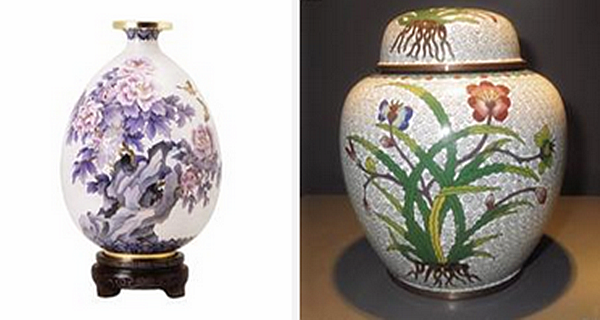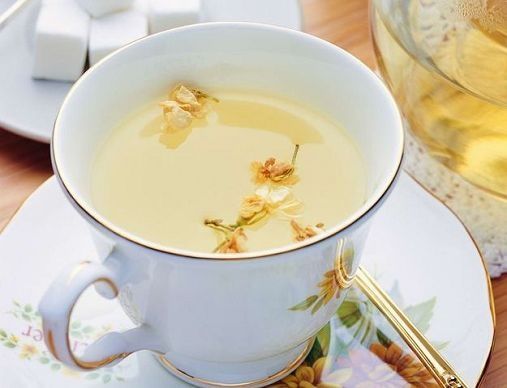Planning your Beijing tour? Back home after traveling abroad, people are transformed mentally. Most people would like to buy some local souvenirs as a physical reminder of their dream travel. So what should people buy in Beijing and bring home as gifts or souvenirs? This question is quite controversial because different people have different choices of buying things as souvenirs.
But one thing that is all agreed is that it is advisable to purchase local specialties or things typical of Beijing. I have summed up below the top 10 souvenirs typical of Beijing. Hopefully this top 10 list will help you find your favorite souvenirs from Beijing.
1. Cloisonne Things (景泰蓝)

Cloisonne is a unique art form that originated in Beijing during the Yuan Dynasty (1271 – 1368). Cloisonne (enamel formed in patterns of copper wire) is an art form developed in the 15th century.
Now this traditional handicraft unique to Beijing features a colorful range of varieties shaped in various models including furnace, tripod, and quadripod, ash-tray, stationary and lantern. Among them, the blue glazed ones with golden color are most colorful.
Where to buy:
Silk Market, Yaxiu Market, Beijing Art and Crafts Store at Wangfujing Shopping Street
The Zhongguo Jie literally means Chinese knots. It is a kind of art knotting. It is given as a sign for wishing people health and happiness year by year.
Chinese knotting is a decorative handicraft arts that originated as a form of Chinese folk art in the Tang and Song Dynasty (960-1279 AD) in China. It was popular in the Ming and Qing Dynasty (1368-1911 AD). The art is also regarded as Chinese traditional decorative knots.
Where to buy:
Silk Market, Yaxiu Market, Hongqiao Market
9. Peking Opera Masks
The art of facial makeup in Beijing Opera boasts a long history. Masks are used by performers when they act or dance. In Beijing Opera, the most representative of Chinese operas, facial makeup is limited only to the roles of “jing” and “chou”.
A chou is featured by his white-painted nose which produces a comic effect and there are relatively few facial makeup patterns for a chou role. There are a large number of facial makeup patterns for jing in Beijing Opera, namely, “whole face”, “three-tile face”, “quartered face”, “six-division face”, “tiny-flowered face” , “lopsided face” , etc.
Where to buy:
Silk Market, Yaxiu Market, Hongqiao Market
4. Neiliansheng Cloth Shoes (老字号内联升)
Founded during the Qing Dynasty (1644-1911) by Zhao Ting, the cloth shoe shop has an auspicious name “neiliansheng” which literally means “unstopped promotions in official ranks” in Chinese.
After the founding of new China, many Chinese leaders including Mao Zedong, Zhou Enlai and Deng Xiaoping also wore the cloth shoes of Neiliansheng.
Neiliansheng’s fame can be ascribed to its high quality products. Making a multi-layer sole takes seven steps. Stitched by thin linen threads, the soles are made of 100 per cent white cotton.
Where to buy:
No. 34 Dashilar, Qianmen, Dongcheng District
10. Er guo tou (Chinese Firewater)
Er guo tou is also called “Chinese white liquor” or “Chinese vodka”). It is a type of baijiu (distilled liquor) made from sorghum, which is 56% alcohol by volume. Er guo tou is often inexpensive, and very much popular among blue-collar workers in Beijing. It is probably the most commonly drunk baijiu in Beijing, and is typical of Beijing.
Source: tourbeijing.com
8. Old Beijing Paper Cut
Paper cut is the picture cut out on a paper with scissors. The art of paper-cut may be traced back to a period as early as the ancient Southern and Northern Dynasties (420 AD – 589 AD).
The patterns are often designed from events in the jubilant festivals, bumper harvest of the folk opera, children or animals and others. They are very beautiful and interesting, and are widely popular among Chinese people.
Where to buy:
Address: No. 110, Nanluoguxiang, Dongcheng District
7. Beijing Lord Rabbit Figurines
Lord Rabbit figurine is regarded as a typical symbol of Beijing local culture. It is a unique artwork that depicts a cute rabbit in a powerful pose.
It was once used for worship on the Mid-Autumn Day. It has become a children’s toy with a type of decoration. In the local shops of Beijing, they are one of the most popular products.
It is said that Lord Rabbit first emerged in the late Ming dynasty. Beijingers from that period had a tradition of making clay rabbits for worship.
Where to buy:
No. 88 Nanluoguxiang, Dong Cheng District
2. Jasmine Tea (茉莉花茶)

Jasmine tea, a kind of scented tea is a tea variety typical of China. It originated in the Song Dynasty, grew in the Ming Dynasty, and became popular in the Qing Dynasty.
The high-quality jasmine tea is made from green tea and scented with fresh jasmine flowers. It is one of best flower tea varieties. For buying jasmine tea, go to Zhang Yiyuan. It has many branches with its headquarter at No. 22 Dashilar, Qianmen Street, Dongcheng District.
5. Ruifuxiang Traditional Chinese Gown(北京瑞蚨祥)
The Ruifuxiang is a time-honored silk store. In 1863, the Mengs opened Ruifuxiang Silk Store in Beijing. The name Ruifuxiang alludes to the “Qingfu”, a legendary insect that could bring wealth.
The first national flag of People’s Republic of China raised in Beijing’s Tiananmen Square on October 1, 1949 was made by Ruifuxiang silk. Ruifuxiang produces complete set of silk products, including high-class silk and satins as well as coarse cloth. Among them, Ruifuxiang Men Traditional Chinese Gowns are world famous.
Where to buy:
No. 190 Wangfujing Shopping Street, Dongcheng District
6. Zhongguo Jie (Chinese knots) (中国结)
3. Shengxifu Hat (老字号盛锡福)
Sheng Xifu is a time-honored hat store. It was founded in 1911. The caps made by “Sheng Xifu” are handmade and famous for their selection of materials and craftsmanship.Many former Chinese leaders such as Mao Zedong, Liu Shaoq, Zhou Enlai, Chen Yi and Jiang Zemin, and foreign leaders such as Jin Richeng (Chairman of North Korean), Su Jiaonuo (president of Indonesia), and Sihanoc (infante of Kampuchea) have once ordered their hats at Sheng XifuWhere to buy:No. 34 Dashilar, Qianmen, Dongcheng District


